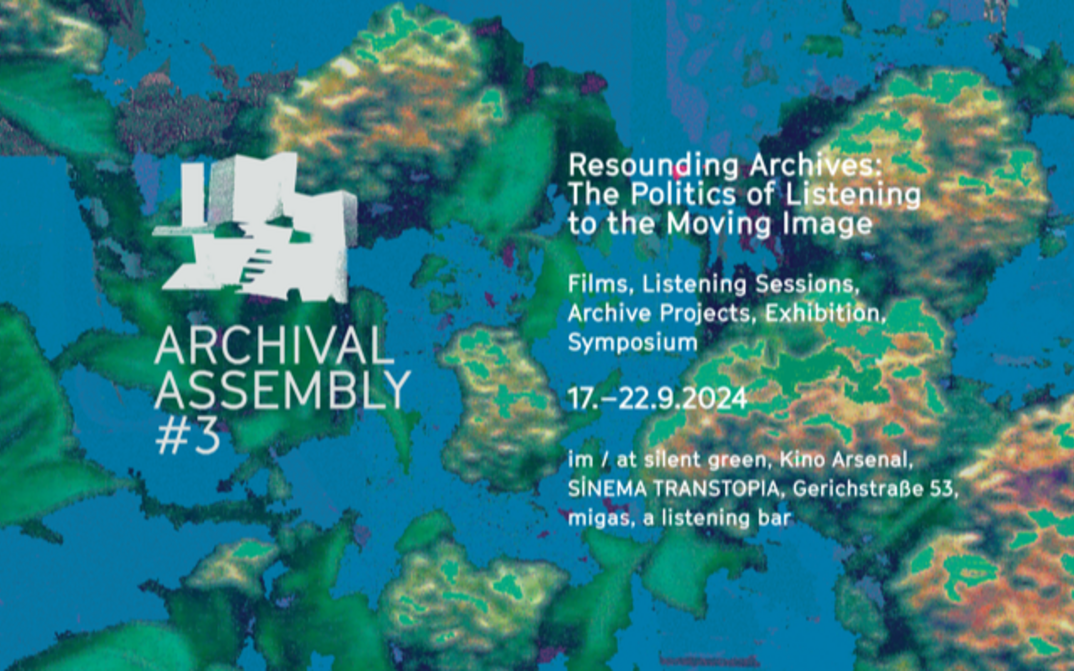Found Futures II: Political Archives

Thu 19.09.
15:00
Cinema
SİNEMA TRANSTOPIA
zu dem KalenderFree admission
15:00–16:30
ARchipelago
Clarissa Thieme, Kaya Behkalam, Nafis Lokvica and Bengi Muzbeg
ARchipelago is a cross-media, archival project of the Goethe Institut Bosnia and Herzegovina developed by Armina Pilav and Clarissa Thieme in collaboration with Kaya Behkalam and Farhan Khalid (The Augmented Archive). The unique platform combines archival documents from the wars and postwar periods of the former Yugoslavia, transforming them into an engaging augmented reality (AR) experience. As a result of an intensive research phase in 2023, the ARchipelago app and online archive were launched in the cities of Sarajevo, Prizren, Mostar, and Belgrade from April to October 2024.
Drawing on numerous archival initiatives and offering a multi-perspective view on the post-Yugoslav region’s recent history, which contains several successor states, questions of cultural translation regarding thinking beyond the nation-state and reflecting on its participants’ various backgrounds is at the very core of ARchipelago. Along with these questions, Bengi Muzbeg and Nafis Lokvica will briefly introduce the Naci & Nafis Lokvica Collection (Lumbardhi Public Archive) at the core of the ARchipelago Archival Hub in Prizren, Kosovo. Commencing in 1975, the collection documents rituals, cultural, and artistic activities during the 1990s, providing a firsthand account of the war in 1999 and the tensions experienced in its aftermath.
16:30–17:30
A Future for AIDS Film Archives
Björn Koll, Marc Siegel
For decades, the film distributor Salzgeber has dedicated itself to a lesser-known chapter of film history: AIDS films. Björn Koll and Marc Siegel will discuss why this is so and what significance engaging with AIDS films can have for cinema. Amid a life-threatening reality and new dimensions of social exclusion, the 1980s fundamentally renegotiated the aesthetic and political questions of film and the relationship between documentary and fiction.
Clarissa Thieme is a filmmaker and artist focusing on fissures between individual memories and their translation into processes of historical objectification and the violence this embeds. Her current artistic research focuses on the possibilities of a living archive as a new commons as well as strategies of vulnerability as resistance. She studied Media Art and Cultural Studies and is a Berlin Centre for Advanced Studies in Arts and Sciences alumna and a PhD in Practice candidate at the Artistic Research Center of the Film Academy Vienna (mdw). Since the early 2000s, several works and collaborations have taken her to the post-Yugoslav region. Thieme is a co-founder of Između Nas/Between Us, an open archive initiative at the Video Archive Sarajevo. Her upcoming project there, Save the Amazon Production – Resumption, explores collective artistic practices as strategies of resistance and solidarity in conflict across times and localities.
Kaya Behkalam is a visual artist, filmmaker, and writer based in Berlin. His work focuses on memorial practices in the digital age. His recent projects in this context include the AR projects Vidness and The Augmented Archive, and web-based collaborations such as A Walking Archive and Port Fiction. Since 2018, he has been the director of the non-profit art association Künstlerhof Frohnau (KHF Berlin), a space and network for artistic and curatorial production in the north of Berlin, where he initiated the Dieter-Ruckhaberle Award as well as the Walden Festival for Contemporary Music & Performance.
Nafis Lokvica, born in 1957, Nafis Lokvica, began capturing events, political tensions, and daily life in Prizren with a photo camera from 1974 onwards and a video camera from the 1990s. The Naci & Nafis Lokvica Collection was created by the brothers Lokvica, documenting events, customs, and the architectural transformation of Prizren through photo and video recordings. The Lumbardhi Foundation, Prizren – Kosovo, has recently digitized it.
Bengi Muzbeg completed his Ph.D. in Film Studies at Istanbul Marmara University and is the Head of Research and Programme at the Lumbardhi Foundation based in Prizren – Kosovo.
From 1990 to 2023, Björn Koll was a managing partner of Salzgeber & Co. Medien GmbH where he oversaw the distribution of over 600 films. Salzgeber represents films ranging from Queer Cinema, documentary, and first features to World Cinema. As manager of the Queere Kulturstiftung, he is especially engaged in establishing a Queer Cinema Archive in Berlin.
Marc Siegel is Professor of Film Studies at the Johannes Gutenberg University in Mainz. His research focuses mainly on questions of queer studies and experimental film. His book A Gossip of Images is forthcoming with Duke University Press. Recent publications include the co-edited volume Serge Daney and Queer Cinephilia (meson press, 2024). He is a member of the Berlin-based art collective CHEAP and the Academy of the Arts of the World in Cologne.